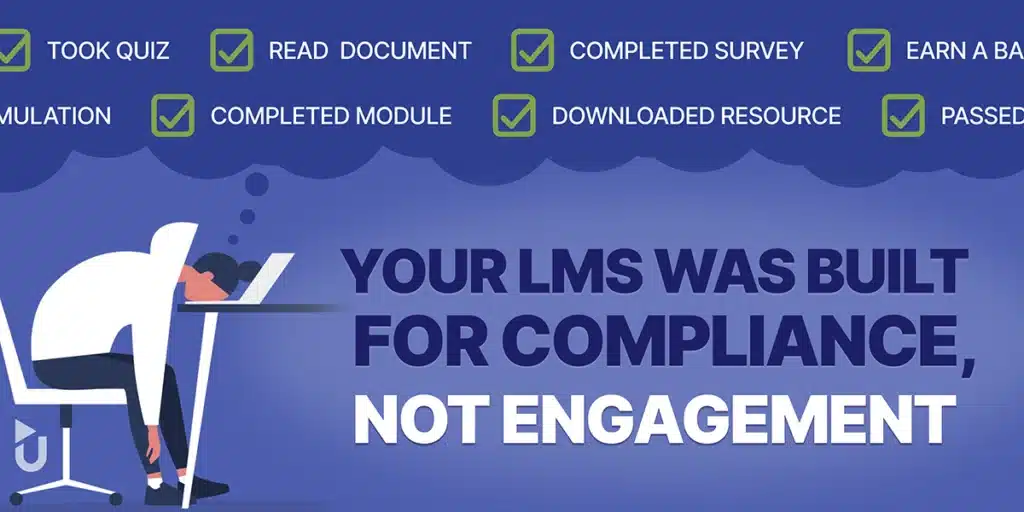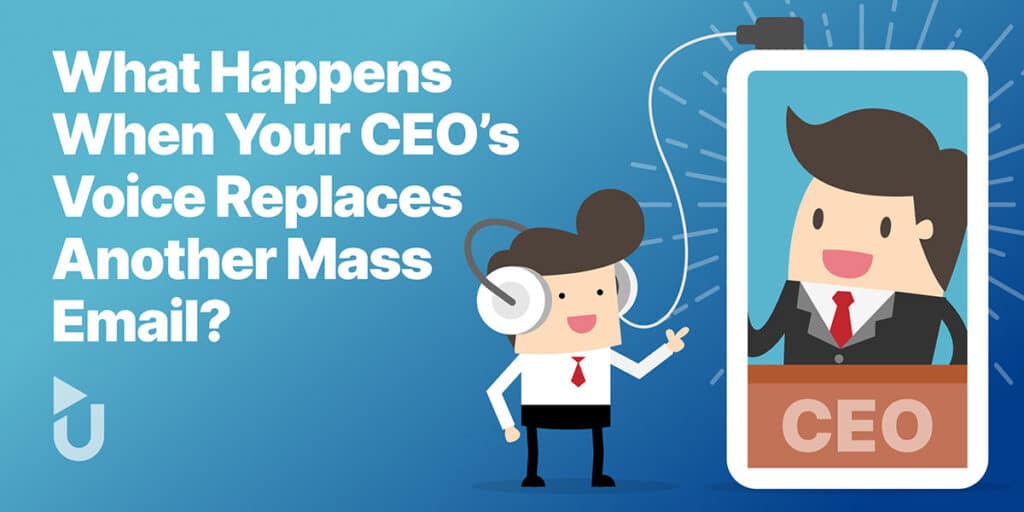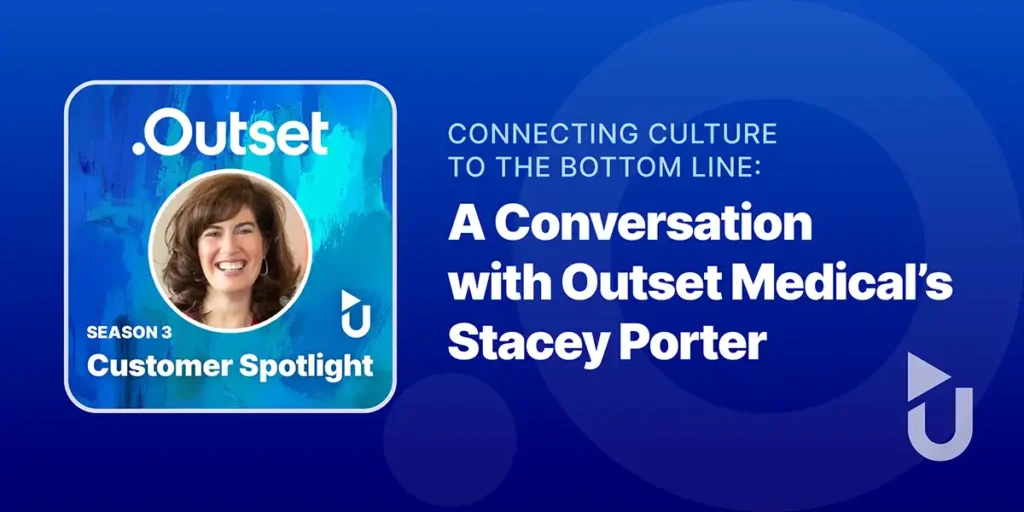Employee Engagement Concerns? Connect with Private Podcasting
uStudio Staff | Podcasting

Today’s modern work environments are a drastic shift from what was considered standard only a few years ago. While there are undeniable benefits of remote and hybrid work, these new models also pose issues for employers. Gone are the days of watercooler conversation. Internal comms has become the default way for coworkers to communicate, but digital text-based communication can only go so far. Companies have turned to creative solutions to keep employees learning, engaged, connected, and communicative despite physical distances. One such solution is private podcasting, also called enterprise podcasting.
What is Private Podcasting?
Before we dissect what makes enterprise podcasting such an effective and noteworthy tool for engagement and connection, we must first understand what it is. Most people have heard of podcasts as more than 60% of US adults listen to podcasts monthly, but private podcasts are a bit different. Rather than broadcasting content to the general public, enterprise podcasting limits content to only employees or internal staff. Enterprise podcasts serve a different purpose than ratings, reviews, and advertising income.
If private podcasting is not dependent on widespread popularity, but instead targets specific communities for their engagement, education, and community, how does that change the content? Much like traditional public podcasts, enterprise podcasts typically focus on a topic or theme. It’s not uncommon for one organization to make separate shows for different topics such as a CEO chat, sales enablement, company news, DEI training or technical information. There are no true limits to the types of enterprise podcasts a business can make, but the defining factor is the internal engagement.
Podcasting For Easier Employee Engagement
Most people have received a lengthy email they’ve had to reread a few times until all the data sinks in or tried to tackle a long book but failed to retain the information. It can be challenging for people to focus on absorbing the necessary knowledge from text alone; this is where podcasting helps.
Studies have shown people have an easier time comprehending and retaining new information through audio compared to only reading. It’s why platforms like Audible and Netflix have become staples for so many. Traditional read-write forms of communication are dying out, and listen-watch formats are on the rise. It’s better to meet employees where they are, using methods they prefer, and offer new solutions to adapt with them.
On-The-Go Training
Using private podcasts to onboard new employees is far more effective than distributing handbooks or using all of an existing employee's valuable time in meetings. Listening to peers and subject matter experts explain processes on-demand, while keeping those leaders available to continue their day-to-day responsibilities, reinforces the content without requiring too much from anyone. Then, you can follow up on the podcast trainings with Q&A sessions, just focusing on necessary clarifications. New employees can pace themselves and revisit trainings as needed while being immersed in the company culture.
Additionally, industries that experience constant change use enterprise podcasting to keep employees informed. Lawyers tune in for regular briefings on landmark cases and updates to local, state, or federal law. Pharmaceutical sales reps listen while on the road to find out the latest in drug manufacturing, so they can keep their eye on the road and know how to communicate with customers.
More Opportunities and Fewer Roadblocks
Employees generally want to learn and engage but reading every technical update or bit of sales news can make earnest work harder. Reading also requires dedicated time where employees sit down and do nothing other than read. Some people may enjoy the separate time for reading internal comms or industry headlines, but it can limit overall productivity and waste opportunities. By contrast, enterprise podcasting lets employees continue doing other things while listening. If an employee has a commute to the office, that drive is the perfect chance to consume the weekly company update, whereas they could not read the same report while driving. Time is a precious resource for your employees, as we work to reduce burnout or attrition and strengthen our corporate communities. Enterprise podcasting lets workers manage their time more efficiently.
Foster Company Culture
One of the most complex parts of remote work is the feeling of distance and disconnection. Private podcasting is one way to make teams feel closer and more invested without everyone in the same physical location. A sales agent is thrilled to hear about a colleague’s successful deal, even if they are in different states. Sharing company news or stories in a podcast helps your audience associate with the larger team working towards common goals.
The best companies meet their employees where they are with the flexibility they need. Teammates more easily share knowledge, everyone feels more connected to leadership, employee engagement increases, and organizations come together with the simple power of enterprise podcasting.
If enterprise podcasting sounds like it could be a solution for your business, connect with uStudio today to learn more.


